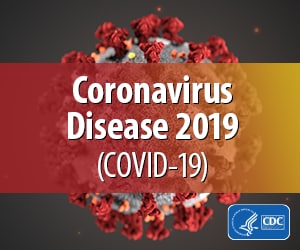CDC’s Role in Accreditation
Funding Support
CDC’s National Center for State, Tribal, Local, and Territorial Public Health Infrastructure and Workforce (Public Health Infrastructure Center) provides support to the Public Health Accreditation Board (PHAB) for its accreditation and continuous improvement activities through a five-year cooperative agreement. CDC also provides in-kind staff time and technical expertise to develop and continuously improve accreditation by contributing to PHAB think tanks and committees and by engaging subject matter experts and programs across CDC.
Public Health Infrastructure Center also supports other national partners—such as the American Public Health Association, Association of State and Territorial Health Officials, National Association of County and City Health Officials, National Indian Health Board, National Network of Public Health Institutes, and Public Health Foundation—to prepare health departments for accreditation by providing technical assistance, quality and performance improvement tools and training, and communication about accreditation.
Incentives & Other Support
CDC is uniquely positioned to play a strong role in promoting accreditation through incentives, both financial and nonfinancial. Examples of support and other incentives from CDC include the following:
- The Strong Systems, Stronger Communities (SSSC) initiative provides support to health departments in completing projects to improve their performance, meet national accreditation standards, and promote interconnection across the public health system to improve population health. SSSC is administered in collaboration with national partners (Association of State and Territorial Health Officials, National Association of County and City Health Officials, National Indian Health Board) and builds on the success of the former Accreditation Support Initiative (ASI). ASI provided awards to 268 health departments during 2011‒2018 and demonstrated that even small amounts of funding can advance accreditation efforts.
- CDC provides opportunities to use cooperative agreement and grant funding, such as the Preventive Health and Health Services Block Grant, to support accreditation efforts.
- CDC notices of funding opportunity [PDF – 267 KB] (NOFOs) include standard accreditation-related language, which may 1) ask about accreditation status and 2) allow the use of funds to support accreditation efforts, so long as the use is consistent with the spirit and authority of the NOFO.
- CDC’s Public Health Associate Program (PHAP) is a highly competitive, two-year training program providing PHAP associates with hands-on experience in public health settings. Many associates assist their host health department sites with accreditation readiness activities and provide much-needed staff support to these efforts. In addition, the application for prospective PHAP host sites asks whether the health department is accredited through PHAB.
- Public Health Infrastructure Center, in collaboration with several national nonprofit partners, offer a comprehensive portfolio of activities focused on supporting the performance improvement workforce. These activities include the annual Public Health Improvement Training, webinars, learning communities, and programs designed to enhance the knowledge and skills of public health professionals.
- CDC’s National Public Health Improvement Initiative was used by many health departments to advance accreditation readiness and other performance improvement activities. The “Advancing Public Health: The Story of the National Public Health Improvement Initiative” compendium describes how public health departments used National Public Health Improvement Initiative funding for accreditation readiness and other performance improvement activities.
CDC also plays an important role in identifying and building connections between PHAB standards and public health programs, key initiatives, and emerging topics of interest to the public health community.
